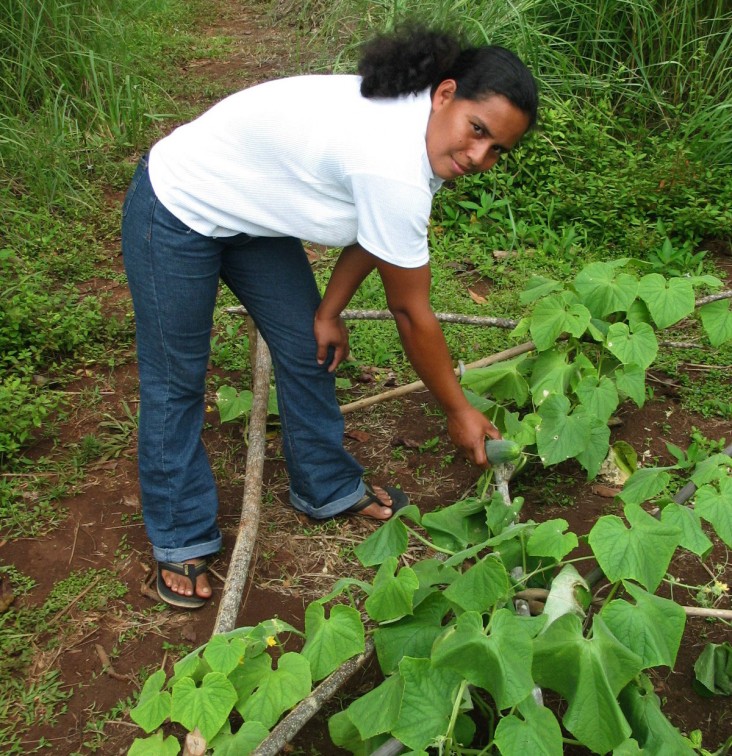
María Leisa Rodríguez used sustainable agricultural practices for the first time after participating in a USAID-sponsored training program for subsistence farmers in the Panama Canal Watershed. She was one of thirteen women who attended the training, out of a total 30 participants.
The training introduced her to techniques not known in her community. Now, she is a model farmer — she not only adopted sustainable agricultural practices, but she also convinced a group of five women farmers to form an alliance to work the land together and produce more. None of the other women in the alliance participated in the training. María Leisa taught them new farming methods for planting a variety of crops such as cucumbers, tomatoes, green peppers, and green beans. She also showed them how to prepare and use organic fertilizer and apply sustainable pest controls.
In 2004, USAID initiated the sustainable agriculture activity in Los Hules-Tinajones, a rural area in the Panama Canal Watershed. Its purpose is to help promote soil and water conservation among subsistence farmers from 10 communities. By disseminating best practices for soil conservation through a local network of promoters and improved local governance, the communities are helping conserve their sub-watershed area. Once USAID’s program is completed, the number of direct beneficiaries will total 210 people, while the entire population of 1,600 persons in the sub-watershed communities will benefit indirectly.
With the experience and knowledge they have gained, María Leisa and the other trainees are establishing an Association of Organic Producers. This organized group will promote new and best sustainable agricultural practices among local communities.
The women say they used to consider agriculture a man’s job. This is no longer the case, they proclaim unanimously. What’s more, men in the community admire María Leisa and her partners for their hard work and harvests. These women farmers are grateful for the training and value their partnership and the economic opportunity to provide for their families, as well as a chance to help safeguard the Canal Watershed environment.







Comment
Make a general inquiry or suggest an improvement.